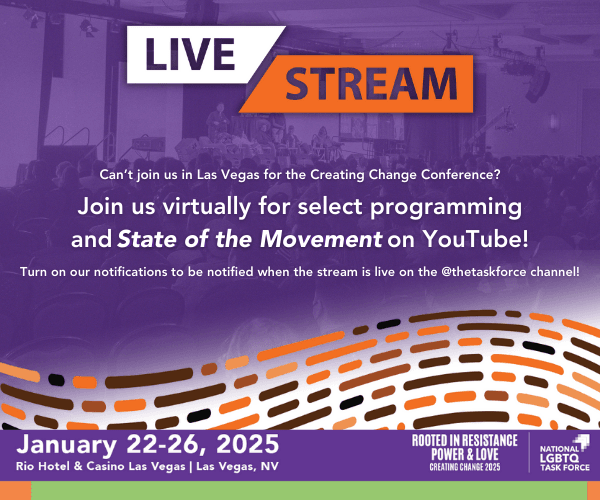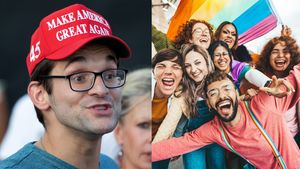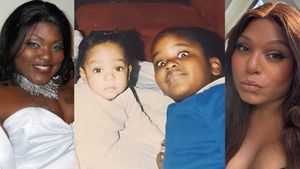A recent Alabama Supreme Court ruling deemed frozen embryos to be children under state law. This led most clinics in the state to immediately halt in vitro fertilization (IVF) due to fears of legal repercussions under Alabama's Wrongful Death of a Minor Act. This ruling is just one in a series of attacks on reproductive rights in the United States that affects both queer and heterosexual people aspiring to parenthood.
The ruling also compounded existing inequalities in access to fertility treatment faced by queer women, single women and transgender men, in particular. A 2023 Human Rights Watch investigation found that heterosexual couples are covered by at least three major U.S. insurance companies' fertility policies, while lesbian couples face significant hurdles and must demonstrate multiple failed rounds of self-funded fertility treatments to qualify for coverage. In what one woman aptly described as a "queer tax," this makes fertility treatment cost up to $30,000 more for queer couples.
Discrimination against queer and single women who want to start and protect their families is a global issue.
In Japan, parliament recently considered a draft law that would restrict access to fertility treatment to women who have a husband, explicitly discriminating against single women and lesbians. In both the U.S. and Italy, the authorities have taken steps to remove non-gestational lesbian mothers from their children's birth certificates. In February 2023, an Oklahoma court removed Kris Williams from her son's birth certificate, ruling the sperm donor is the child's second legal parent. In an eerily similar attack on queer motherhood, a state prosecutor in Italy ordered the cancellation and re-issuance of 33 birth certificates of lesbian couples' children in January 2023, removing the non-gestational mother. Though a court ruled in March 2024 that the government could not simply remove women from their children's birth certificates, a similar case in Milan indicates that a precarious, back-and-forth legal battle may ensue.
Despite the barrage of bad news and court cases, the British government committed in 2022 to a 10-year strategy to end discrimination against "female same-sex couples" seeking fertility services. This change, thanks in large part to queer women's activism, would remove the requirement that lesbians seeking publicly funded fertility treatment prove infertility by self-funding 12 rounds of artificial insemination, including 6 in a clinical setting. Doing so has historically cost lesbian couples around £26,000 - yet another queer tax - while heterosexual couples could prove infertility by simply attesting to having had two years of unprotected sex. The strategy does not, however, define "same-sex" or "couple," leaving it unclear if those in civil partnerships, as well as transgender, non-binary, and gender non-conforming people qualify. It is also silent on the treatment of single women.
The lack of policies around the globe to protect single and queer women who wish to become parents points to the grim reality that many rights – parental and otherwise – are still allocated to women based on their proximity to men.
Doctors in several U.S. states still ask women for "spousal consent" before performing hysterectomies. Almost half of countries limit women's property rights, and 44 countries prioritize sons in land inheritance, meaning that a woman's only path to generational wealth is often through a husband. To add insult to injury, even for women who do marry men, more than 100 countries still deny them the right to inherit their husband's land. Several countries allow fathers to prevent unmarried daughters from traveling abroad, and some ask women to produce evidence of a male guardian's "permission" to rent an apartment.
A lesbian activist in Kyrgyzstan told me she was coerced into marrying a man at 19 and wasn't allowed to move out of her parents' home until then. Paradoxically, she explained, "there is no path to freedom if you don't marry a man."
Around the world, attaching oneself to a man legally, financially, and socially is a prerequisite for a host of rights.
It would be easy to assume that fertility treatment is a privileged woman's issue, something lesbian and trans activists would only advocate after they had achieved other, more seemingly foundational LGBTQ+ rights. Traditionally conceptualized, this would include the decriminalization of same-sex conduct and marriage equality. However, in interviews I conducted across 26 countries, I found that queer women raised fertility, parental rights, and women's rights in custody battles as often or more than they did police abuse, criminalization, marriage equality, and employment discrimination.
Lesbians in Kenya and Malawi, two countries without marriage equality and where same-sex conduct is a criminal offense, told me that having children and protecting their rights as legal guardians was "what kept them up at night." They questioned not only why their ability to become parents was dependent upon marrying a man but also why it had to follow a normative LGBTQ+ rights advancement ladder.
Governments should reform discriminatory fertility laws, introduce anti-discrimination legislation, and remove disproportionate barriers to accessing reproductive treatments. States should also abolish laws that prevent single women and unmarried couples from adopting, and pass queer-inclusive parental recognition bills that explicitly recognize the legal parenthood of non-gestational lesbian parents.
As LGBTQ+ advocates and allies globally, we also need to center women's autonomy, including advocacy on behalf of single women, in the struggle for queer justice. The LGBTQ+ rights advancement playbook, as we normally speak of it, doesn't tell the whole story for queer women.
Erin Kilbride is a researcher with the LGBT rights and Women's rights programs at Human Rights Watch.
Voices is dedicated to featuring a wide range of inspiring personal stories and impactful opinions from the LGBTQ+ and Allied community. Visit Advocate.com/submit to learn more about submission guidelines. We welcome your thoughts and feedback on any of our stories. Email us at voices@equalpride.com. Views expressed in Voices stories are those of the guest writers, columnists and editors, and do not directly represent the views of The Advocate or our parent company, equalpride.















































































